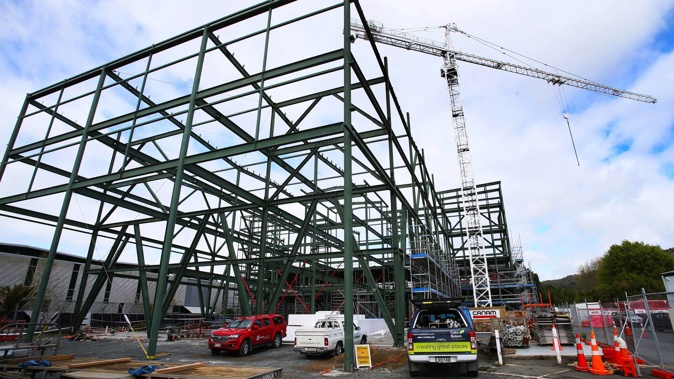
New Zealand business confidence and demand fell over the December quarter, while inflation pressures continued to build, NZIER said in releasing its latest survey.
NZIER's quarterly survey of business opinion (QSBO) was carried out from November 8 to January 10 – capturing the effects on Auckland and its neighbouring regions of Covid-19 lockdowns and domestic and international border restrictions.
"With new Covid-19 variants emerging and overwhelming healthcare systems in other major countries, uncertainty over how the pandemic will evolve remains high, and businesses have become more cautious about investment," NZIER said.
A net 34 per cent of firms expected a deterioration in general economic conditions over the coming months against 11 per cent in the previous quarter.
NZIER said a net 1 per cent of firms reported weaker demand in their own business in the quarter.
Labour shortages were constraining businesses, it said.
"Businesses are still looking to hire despite the uncertainty about how the pandemic will evolve but continue to face acute labour shortages.
"This is reflected in both the high proportion of firms reporting difficulty in finding both skilled and unskilled labour and the highest proportion of businesses now reporting labour as the primary constraint on their business.
"Acute labour shortages are underpinning a lift in wage growth, and this is contributing to higher costs for businesses."
A net 61 per cent reported increased costs in the December quarter – the highest level since June 2008.
"Cost pressures were particularly intense in the building and retail sector, likely reflecting the effects of global supply chain disruptions due to the pandemic."
Over half of businesses raised prices in the December quarter, and a net 65 per cent plan to increase prices in the next quarter.
"These results point to inflation pressures in the New Zealand economy remaining strong over the coming year," NZIER said.
The manufacturing sector was the most downbeat of the sectors surveyed, with a net 34 per cent expecting a worsening in the economy over the coming months.
The services sector was also glum in the December quarter, partly reflecting the relatively greater impact of Covid-19-related containment measures on activity in this sector.
Intense cost pressures also weighed on profitability in the sector.
The building sector was pessimistic as cost pressures continued to intensify, with a net 92 per cent of firms reporting an increase in costs in the quarter.
The pipeline of construction was solid, with the architects' measure of activity in their own office pointing to strong demand across residential, commercial and Government work.
ANZ economists said the survey showed that it was now clear that the Reserve Bank's main task would be bringing inflation – which came to 4.9 per cent in the September year – back down to earth.
"The QSBO only highlights the degree to which inflation and employment have now deviated from the RBNZ's targets," ANZ said.
"The labour market is not consistent with low and stable inflation, with a massive mismatch between the demand and supply of labour fuelling underlying inflation pressures.
"And that means even though the labour market has never been tighter, real wage growth is going backwards –and people are having to work more just to maintain the same standard of living," ANZ said.
The Reserve Bank's next review of the official cash rate – currently at 0.75 per cent – is due on February 23.
"By then we'll know what happened to inflation and the labour market in Q4 – and the Q4 QSBO print reinforces our suspicion that both inflation and labour market pressures will be more intense than we or the Reserve Bank expected when the November monetary policy projections were published.
"That'll be concerning for the Reserve Bank, given the rise in inflation expectations over the past year, and the amount of imported inflation that's coming through as well, with US CPI inflation at an eye-watering 7 per cent in December," ANZ said.
As inflation pressures continued to exceed expectations, it only increased the likelihood that the Reserve Bank will feel the need to signal and then deliver more hikes, the bank said.
- by Jamie Gray
Take your Radio, Podcasts and Music with you









